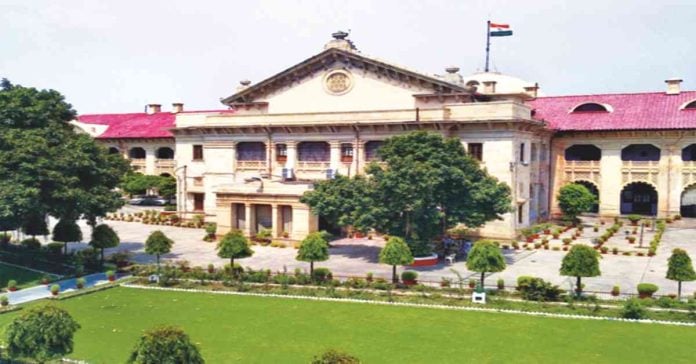The Allahabad High Court has dismissed the petition saying that in provisions of Section 129 it is well settled that the levy of tax and penalty cannot be based upon the presumption, especially in cases where the goods were accompanied by a tax invoice and E-way bill.
A Single Bench of Justice Pankaj Bhatia passed this order while hearing a petition filed by the State Of U.P through Secretary.
The petition has been filed challenging the order dated 22.06.2019 passed by the appellate authority whereby the demand of tax and penalty imposed vide order dated 17.05.2019 under Section 129(3) of the CGST Act was set aside.
The facts of the case are that the goods being transported by the respondent were intercepted on 28.04.2019 at about 21:31 hours on the intelligence received by the petitioners that the goods were being transported on the basis of tax invoices which were pre used.
After the interception, the statement of the truck driver was recorded. Based upon the said statement, the authorities proceeded to pass an order under Section 129(3) of the CGST Act after serving the copy of the notice to the respondent, whereby the respondents were directed to pay the tax on the goods being transported amounting to Rs 7,23,700/- and further cess of Rs 19,05,024/-.
The said order was challenged by the respondents by preferring an appeal.
The Court noted that the appellate authority by means of the impugned order held that there was no material available with the authorities concerned for detention and seizure of the goods, for passing the orders under Section 129 (3) of the CGST Act. While deciding the appeal, the appellate authority after referring to the provisions of Section 129 held that it is well settled that the levy of tax and penalty cannot be based upon the presumption.
The Counsel for the petitioner argued that the petitioners had received intelligence that the goods are being transported twice over on the same set of invoices. The said argument, in the case in hand, is not worthy of acceptance, inasmuch as, the goods to be transported have to be accompanied by E-way bills as provided under Section 138 of the Rules framed under CGST Act and this fact that the said set of E-way bills would use neither emerged in the assessment order nor is there any basis to arrive at the conclusion that the appellate authority rightly allowed the appeal preferred by the respondent and directed for release of goods and the transport vehicle.
The Court further noted that the plain reading of the provisions of CGST Act makes it clear that the provisions as contained in Chapter 19 including Section 129 are the provisions for release of goods intercepted during transportation on the ground as engrafted therein and provides an opportunity to the assessee to take the benefit and to come forward for release of the goods on payment of the amounts as indicated in Section 129 (1)(a)(b) and (c) as the case may be. The quantum of penalty which is to be paid under Section 129 (1)(a)(b) and (c) is to be determined under Section 129(3) of the CGST Act.
The said power is purely an alternate mode given to the assessees to come forward and to avoid any future litigation and to offer and pay the amount. If the assessee does not avail the benefit as accrue from Section 129, the department is clearly free to take recourse under Chapter 15 read with Section 122 of the CGST Act to take steps for determining the tax due liability and the penalty, the Court said.
“In the case, as the respondent has not approached for availing the benefit that flow from Section 129, coupled with the fact that the appellate authority found that the basis for initiating proceedings were non-existent, I do not see any reason to interfere with the order passed by the appellate authority, in exercise of powers under Section 226 of the Constitution of India”, the Court observed while dismissing the petition.
The Court ordered that the interim order passed earlier is vacated.


